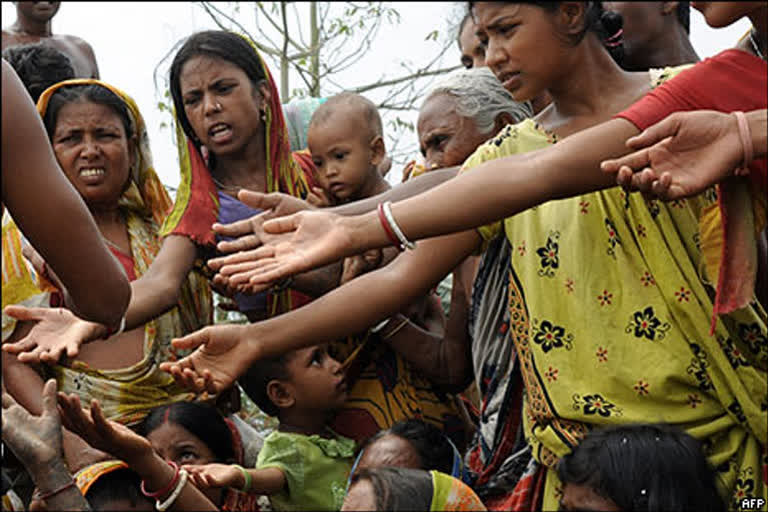Hyderabad: Around 811 million people were undernourished last year due to COVID-19, the United Nations (UN) said on Monday citing a report 'The State of Food Security and Nutrition in the world 2021'. World hunger had surged in 2020, surpassing population growth and in all likelihood hit its peaks since 2005, as the pandemic restrained incomes and access to food, the United Nations said.
The report was jointly published by the Food and Agriculture Organization (FAO) of the UN, the International Fund for Agricultural Development (IFAD), the United Nations Children's Fund (UNICEF), the UN World Food Programme (WFP) and the World Health Organization (WHO). This is the first such global assessment report to be put out by the agencies in the wake of the pandemic.
Heads of the five UN agencies said, "Unfortunately, the pandemic continues to expose weaknesses in our food systems, which threaten the lives and livelihoods of people around the world." Globally, the Coronavirus pandemic has led to a severe decline in economic activity thereby jeopardizing access to food, which has resulted in hunger spread and malnutrition. The UN has also termed conflict, high inequality, climate change and a slump in economic activity as the major drivers for the shortage of food and malnutrition. Adding to the woes, inflation in food prices has been at its highest in 10 years, the report said, making things difficult for emerging nations that mostly depend on imports.
In a bid to end hunger, the UN has given a clarion call to the world to ensure that everyone gets access to food by 2030. The global body said that the prevalence of undernourishment (PoU) witnessed an increase from 8.4 to 9.9 per cent within a year, having virtually remained the same in the last five years. The stark increase in PoU has now compelled the UN to defer the target of realizing 'Zero Hunger' by nine years.
Also read: COVID-19 could push nearly 7 million children towards hunger and malnutrition, says UN
According to the report, 21 per cent of the inhabitants in Africa, 9 per cent in Asia, and 9.1 per cent in Latin America and the Caribbean face hunger. In terms of numbers, more than half of the world’s undernourished are found in Asia (418 million) and more than one-third in Africa (282 million). When compared to the situation in 2019, an additional 46 million people in Africa, 57 million in Asia, and 14 million people in Latin America and the Caribbean were affected last year.
To resolve the hunger crisis, the UN has urged policymakers to ensure the integration of humanitarian, development and peacebuilding policies in conflict areas, build climate resilience across food systems, lessen the pandemic impact or food price volatility by releasing financial support, ensure that the cost of healthy and nutritious food is lowered by constantly monitoring supply chains and to boost food value chains among the poor community using technology transfers and certification programmes.



